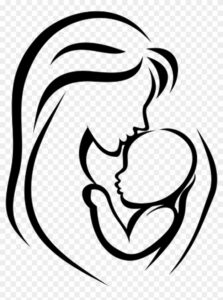“To have and to hold, from this day forward, for better, for worse, for richer, for poorer, in sickness and in health, to love and to cherish, til death us do part”.
Like many young girls who had grown up watching Disney films, I had always dreamed of the fairy tale wedding. And when it came to planning my own wedding, I got the chance to make my dream a reality. We had it all (at great expense!), the fairy tale castle, the dress, even the horse-drawn carriage. Now, I am an experienced Psychologist and, therefore, have a grounding in the reality of human relationships, but as I stood at the alter on that day, I was filled with all the hopes and dreams of a little girl wanting her “…happily ever after”. Because, at some level, I had hoped that by creating this fairy tale my marriage would fare better than my parents before me, who divorced when I was 18yrs of age.
And I’m not alone! Nobody starts a marriage thinking it will end in divorce. Of course, we are all aware of the high divorce rate, but pray it won’t happen to us. However, the reality of long term relationships is that they are incredibly hard work and far from the fairy tale fantasy. Read on to find out some of the psychology behind common relationship pitfalls and how to manage them, so your relationship has more chance of lasting the distance.

We’re Expecting…
It is no surprise that the work required for a healthy relationship only magnifies once you make the decision to start a family. Because as much as we love our kids, becoming parents changes the dynamic of a relationship from a twosome to 3+ and will create new challenges
for a couple.
According to Professor Kim Halford from Griffith University’s Psychological Health Resource Centre. “There’s a finding that the average relationship satisfaction for couples goes down across the transition to parenthood”. Halford says there are many reasons couples may feel dissatisfied with their relationship after they have a baby.
But mostly it’s because couples are completely unprepared for the reality of life with a new baby – despite reading books, going to antenatal classes and quizzing other parents. “The estimates suggest that after the birth of a child you can add 30 to 40 hours a week of extra work to a couple household, and most people have no idea about that,” Halford says.

Sharing the Load
Division of labour is one of the most common sources of conflict for a couple after they have a baby. Research consistently finds women do more work around the house, and that the unequal division of labour becomes even more entrenched once children come along. And it’s not just the physical labour (excuse the pun!) of child rearing and household duties that women find burdensome. They also do more of the intellectual, mental, and emotional work of childcare and household maintenance. Sociologist Susan Walzer published a research article in 1996, called “Thinking About the Baby,” pointing to this household gender gap. Walzer was interested in the invisible part of this work, the kind that occupied people’s minds. However, it is our willingness to do it all that allows everyone else the freedom not to. This is why it’s so important that parents to talk to each other. “Both partners need to understand how much work is involved in raising a child and running a home and have reasonable communication about the sharing of that load, physically and cognitively. Particularly if the mother decides to return to work – they have to come up with a sharing that’s mutually acceptable,” Halford says.
But women also need to understand their partners may be struggling as well, says Martien Snellen, a psychiatrist who works with couples during pregnancy and after birth. According to Snellen, “women often fantasise about how wonderful it is for him when he goes to work – and the first thing he gets when he walks through the door is a baby handed to him and the woman says, ‘you don’t appreciate what it’s like looking after baby and how much work that is’ – but often women don’t appreciate how hard it is for the men”.
“Lets talk about Sex Baby, Lets talk about You and Me…”
Snellen, who’s also the author of Sex & Intimacy after Childbirth, says goodwill can also help out with the other big issue post-baby – SEX. Research has found it takes most couples about a year for their sex life to return to what it was before the pregnancy. Even then, Snellen asserts, there can be several aborted attempts, embarrassment, and discomfort along the way.
Once again, it’s about expectations: if both partners are happy to have sex, or not, then things should sort themselves out in due course. But sometimes one partner – often the man – wants to resume the sexual relationship, and the other partner isn’t ready. There’s also the common issue of differing libidos between men and woman in terms of frequency of sex.
Snellen says it can help if both partners understand why sexual relationships can falter after having children. But even if both partners aren’t ready for sex, couples can still enjoy intimacy.
Most experts agree communication is the key a healthy relationship – if couples can share their feelings, frustrations, and concerns then they’re well on the way. However, our individual styles of communication can differ from each other, creating communication problems within the relationship. These styles often have their roots in our early childhood experiences of communication and conflict within our families of origin.

Attachment Theory
Attachment theory in Psychology looks at the quality of attachment that we develop with our primary care-givers (our parents) in early life and how our parents’ relationship, and communication styles with each other, act as a role model for a child’s behavioural and emotional development into adulthood. In other words, we observe and learn from our parents about communication and attachment in relationships, that impacts on how we conduct our own relationships in adulthood. Attachment issues originating in childhood can wreak havoc in your relationships. They are the unseen saboteur, ready to undermine the most loving relationship. If you can relate to this and want to seek further information and support in identifying and improving your communication style, then seeking professional support from a Psychologist who is trained in attachment theory, such as myself, can help.
Our Innermost Needs, Wants and Desires
When needs are not met, or values not respected and accepted, even when we don’t recognise that this is happening (which is often), strong feelings can arise. As previously discussed, the demands of parenthood invariably mean that, particularly as mothers, we tend to neglect our own needs. Resources for the ‘self’, and the ‘couple’ are limited, and so we become competitive within the relationship, fighting for resources. We become resentful, if we perceive that our partner is having more needs met than us. However, Martien Snellen (Psychiatrist) has some advice for the equal division of needs when it comes to a “formula for a happy family”:
- Mum spends time with kids
- Dad spends time with kids
- Mum spends time alone
- Dad spends time alone
- Mum and Dad spend time alone
- Mum and Dad spend time with kids.

‘Because I’m worth it!’
Our primary relationship is with ourselves, every other relationship follows from there. In order to attract, heal or balance a relationship, we must first pay attention to our own needs and responsibilities. The purpose of a relationship is not to provide someone to lean on and heal the lonely, unsure, doubting part inside us. Rather it is an opportunity in which we can consciously become complete within ourselves by addressing our own needs, wants and values. Healthy couples support each other to autonomously support, expand, change and experience the ‘self’. You must love and accept yourself first, and then you will become a more attractive mate, and one that is more loveable to the partner. Only then, will you get the love back that you seek. The irony is that we must be a little bit selfish, in order to make a relationship work. The way forward is to notice your feelings, and the needs or values that these are alerting you to. Then you can approach your partner and express these. For more information on how attend to your own needs and to make time for yourself, please refer to my recent blog on ‘The Stresses of Modern Day Motherhood.’ http://northernbeachespsychology.com.au/stress-of-modern-day-motherhood/

Who me?!
We also have a responsibility to manage our own cognitions (thoughts/interpretations). As a Cognitive, Behavioural Psychologist, I work with clients to help them identify and change unhelpful behaviours and thoughts that impact on their psychological well-being. How we interpret our self/partner/world dictates how we feel and function in life. Part of focus on ‘self’ should be to take responsibility for how we perceive our self, our partner and our relationship and start to question and challenge the accuracy of our own beliefs. It is all too easy to misinterpret our partner’s behaviour… “He left his dirty underwear on the floor because he expects me to pick it up. Ergo, he takes me for granted and doesn’t respect me”. However, according to Carl Jung (Swiss Psychiatrist) “Everything that irritates us about others can lead us to an understanding of ourselves”. Therefore, we could challenge that view by re-framing it. Perhaps, I have personalised his behaviour and misinterpreted it? Maybe I’m making it about me, when it isn’t? In truth, it’s never actually about the other person. We all act and react in response to our unmet needs, so when my partner or I behave badly it is because our inner child’s needs are not being met. By challenging our self in this way, we can identify distortions in our thinking that may be sabotaging our relationship and our happiness. Also, when we can accept and respect our differences our relationship has a chance of blossoming.
In conclusion, I may be a Psychologist and thus, aware of these issues. However, it makes me no less vulnerable to facing the pitfalls and challenges that marriage can bring. As previously stated, relationships are hard work. My husband and I continually work at making ‘us’ work. After 20yrs together we have learned a lot about ourselves, each other, and the relationship. Sometimes we get it right, and sometimes we don’t. But we try to learn and grow from our mistakes. We are on a journey and our need for connection keeps us trying!
“A perfect relationship is two imperfect people refusing to give up on each other”

If you have found this article interesting, can relate to any of the content or wish to learn more about this topic you can contact the author, Nicola George (Chartered Psychologist) on 0410 235030 or find out more about the service she offers via her website; http://www.northernbeachespsychology.com.au
